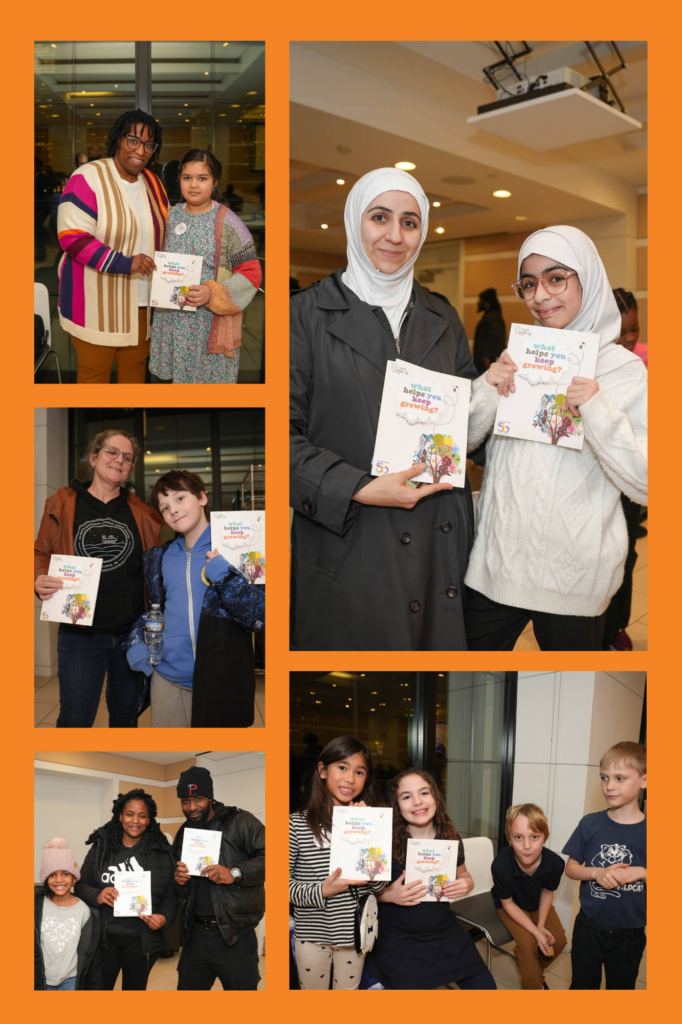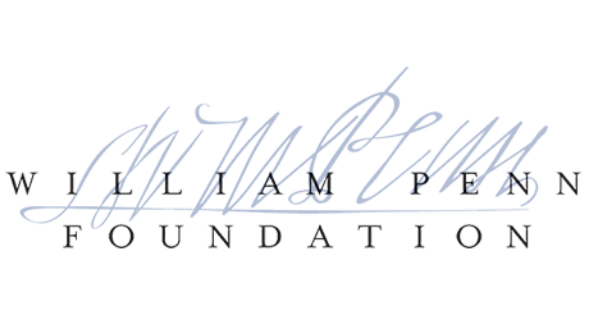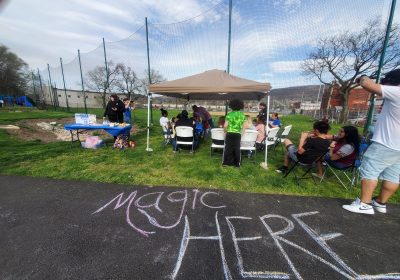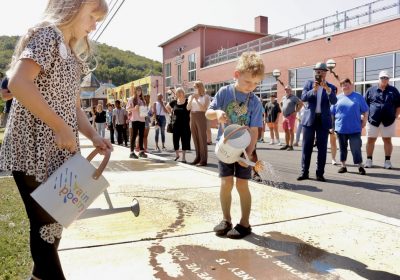By Karen Price
The public library is a place where imaginative minds can explore new worlds and find opportunities to learn and grow.
That’s why the Free Library of Philadelphia was the perfect site to host the launch of PA Humanities’ new book of poems collected from Philadelphia school children as part of 2023’s Rain Poetry pilot project. The book showcases all the haiku poems collected during last year’s workshops, in which more than 250 children from five neighborhoods wrote on the theme, “What helps you keep growing.” It was distributed at no cost to participating students, classes and programs.

“It’s really impressive, it’s exciting, it’s a new way to interact with poetry and it has a little mystery to it, which is really cool,” said Philadelphia Poet Laureate Kai Davis, who was on hand for the celebration.
The celebration event at the Free Library of Philadelphia featured food, live music, hands-on children’s activities, speeches, a video presentation, and readings from local Philadelphia poets and Rain Poetry participants.
One participating student who came to the library to celebrate with her family and collect her own copy of the book was Zoelle Bey.
“It pulls the kids in to make beautiful poetry, especially when it’s about expressing your feelings, too,” she said.
PA Humanities launched Rain Poetry last year as part of its 50th anniversary, as an example of the power of the humanities to help foster learning, connection, and community engagement. Using a curriculum developed by area poets laureate and literacy specialists, Philadelphia poets went into classrooms and afterschool programs, taught the students about haiku during special workshops and helped them craft their own poems.
The workshops were only one part of the project. PA Humanities, with the help of creative placemaking partner Tiny WPA, then took selected poems and installed them on the ground at some of the partner sites and public parks using an invisible spray, which only appears when wet. PA Humanities held reveal celebrations for students, their families and community members, and the installations lasted for several months.
“I think poetry provides a solid outlet for (students) to be heard by others, and to understand that they are in a community and no one is facing a singular problem,” teaching artist Enoch the Poet said. “And I think with the Rain Poetry project specifically, it does all those things plus adds the extra element of allowing the students to have their work placed in the environment. There is an immense power (to that). And just showing students that they can shape the world around them, allowing them to come and stake claim on this block of cement like, ‘Yo, these are my words,’ that’s crucial.”
After the successful pilot in Philadelphia, Rain Poetry is now set to celebrate the voices of Pennsylvania youth and foster a sense of belonging in public spaces in Pittsburgh and in Johnstown. For more information about the project, visit rainpoetry.org.
And check out the book below!


![[color – dark bg] PA SHARP FINAL FILES DB 72dpi [color - dark bg] PA SHARP FINAL FILES DB 72dpi](https://pahumanities.org/uploads/files/elementor/thumbs/color-dark-bg-PA-SHARP-FINAL-FILES-DB-72dpi-phgl7aimtfdpzt2rscvl43ksfv3asbbls19lsvuacw.jpg)


